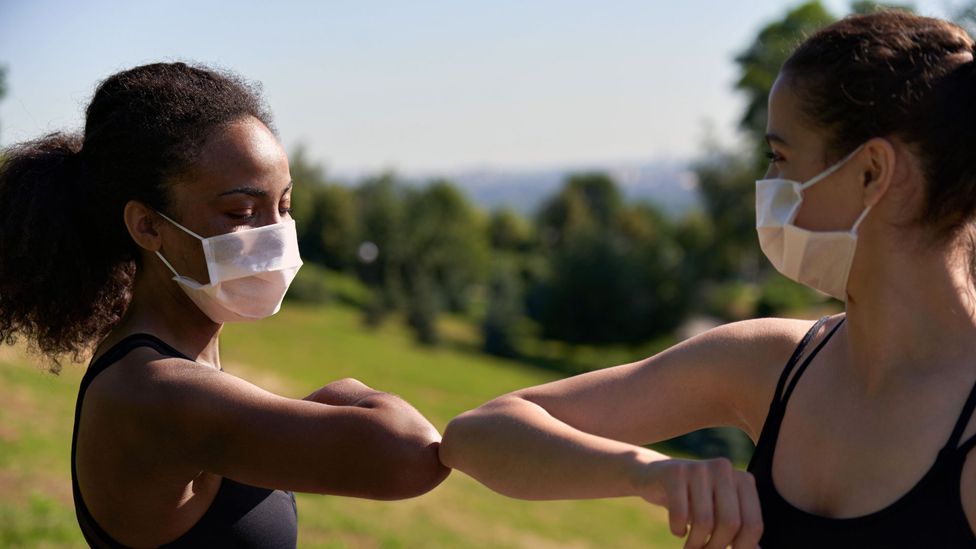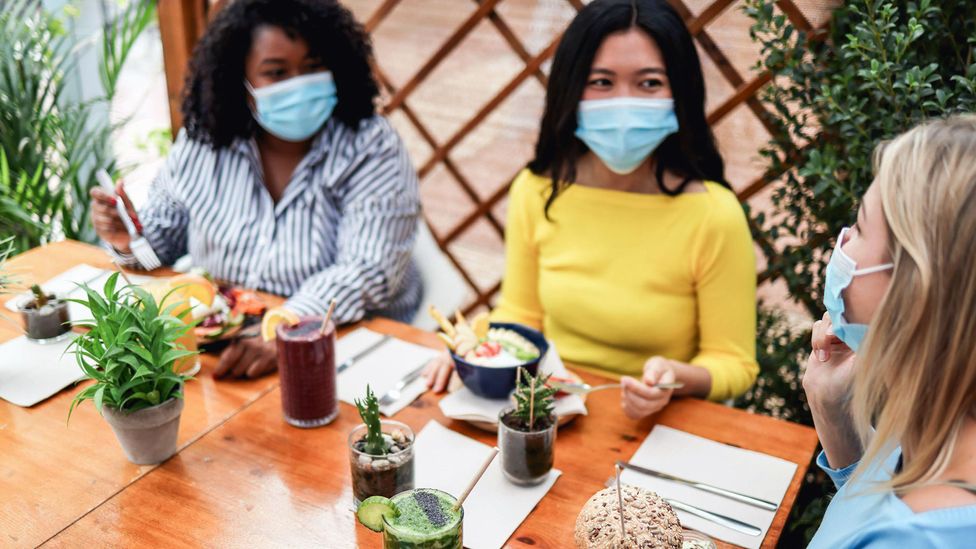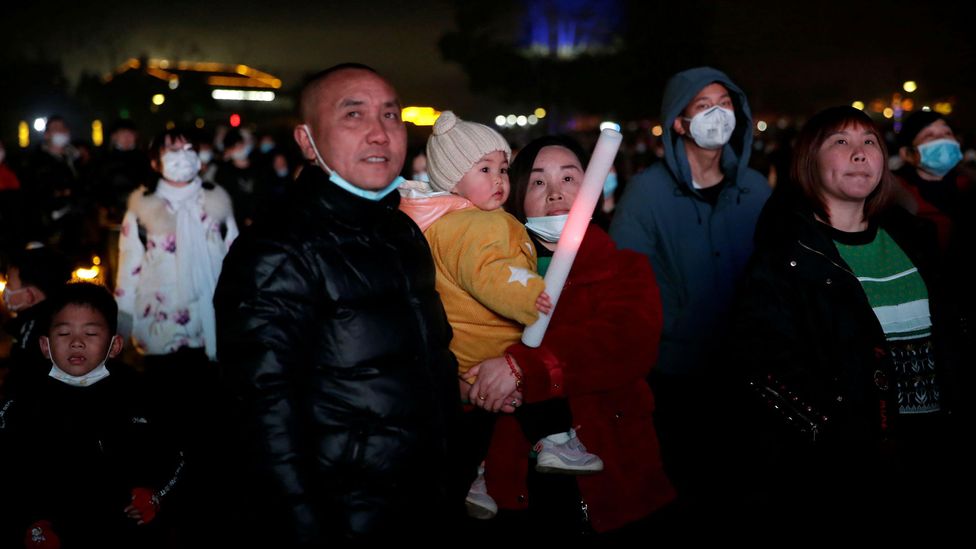As host of the podcast Dear Prudence, Daniel M Lavery mostly dishes out advice from his base in New York. But he occasionally reveals his own anxieties as well, as on a recent episode when responding to a lonely graduate student who was apprehensive about social contact during the Covid-19 pandemic. Lavery found this relatable:
It’s really, really hard to think about being around people again. One of the things that’s struck me as I think about the possibility of someday again being in like a crowded room with other people without a mask on is, like, I have spent a very long time longing desperately for such a day, and I also sometimes now catch myself having this sort of like panicked response… I don’t want to be afraid of that, that’s the thing I want. And yet, I also have this, you know there’s a part of me that now reacts in a way that I did not used to, which is terror.
Lots of us are in the same boat. We’ve been forced to be asocial, at least in physical terms, for a year now. As a result, many are finding that any in-person social interaction is awkward – it feels like we have to re-learn how to sit in a room with another human. Even dreaming has been transformed in unprecedented ways, with a trend of nightmares about social distancing.
So, when things open up again, is there going to be a learning curve to feeling ‘normal’? Have our social muscles atrophied in some way, and do we have to ‘retrain’ them?
Fortunately, these muscles are fairly resilient, and accounts from places that have been less affected by Covid-19 suggest that it doesn’t take long to return to some version of a social normal. Still, some hiccups are to be expected along the way, so it will help to be prepared for them.
Your brain in isolation
It’s not surprising many of us might be feeling socially ‘rusty’. We’ve all, to varying extents, experienced loneliness and social isolation during the pandemic, two things that can be linked to cognitive decline in specific ways.
For instance, people with smaller and less complex social networks tend to have a smaller amygdala, the brain’s emotion-processing centre. Chronic loneliness can affect levels of hormones associated with stress and social bonding; one effect may be a greater propensity to depression. In general, lonely people tend to be more paranoid and negative.
Prolonged isolation also affects memory and verbal recall. Social creatures, humans included, need plenty of interactive stimulation to keep their brains in good order. So, if you’re finding more words escaping from the tip of your tongue these days, lockdown may be playing a part. For me, for 90% of the time now, I’m speaking only to my partner, in very familiar conversational patterns. I feel a bit shaky when it’s time to chat with a friend, as if it requires dredging up a once-familiar language. When people are cleared to spend time together again, it may be hard to find the right words.
Of course, as individual circumstances vary so widely, so too will the transition back into post-pandemic social life. An unemployed, medically vulnerable person who’s spent the entire period living alone may find the next phase more disorientating than a financially secure person living in and working from a big, shared house. Overall, some of the behavioural changes can reverse quickly with a return to more typical social patterns.
But Daniela Rivera, a biologist at the Universidad Mayor in Santiago, believes that physical changes in the brain, such as those connected with memory, won’t budge so easily. With shrinkage in some parts of the brain, memory function can be impaired for years following periods of social isolation – and with it our ability to connect easily with other people.
It’s not just how our brains may have changed, however. Overall, psychologists are seeing more adults report stress over social interactions, ranging from not knowing how to bookend interactions without a handshake or a hug, to running out of things to talk about. But certain groups are particular sources of worry.
The situation is especially thorny for people with social-anxiety disorder. “Maintaining the progress is really important – because once you are not around people, as we haven’t been for almost a year now, it’s very easy to slip back into old patterns,” reflects Marla Genova, a former psychology researcher who coaches people with social and speaking anxiety.
There are also concerns about schoolchildren who have fallen out of sync socially during the start-stop uncertainty of lockdowns. “At this age, the brain is still developing and refining neuronal connectivity; thus it is a critical phase to develop social abilities that will define their interactions with peers,” explains Rivera. She worries the prolonged isolation could lead some to develop social phobia. Elderly people, meanwhile, are more likely to be living alone, and may be less comfortable with technological devices to preserve social contact.
Rivera predicts that changes that could emerge in some vulnerable people during the re-socialising period could include hyperactivity, intolerance, irritability and anxiety, among others.
How to ease back in
Protracted lockdowns and different cultures will make for varied experiences as regions emerge from lockdown. But some commonalities and lessons are emerging.
Physical contact, a previously taken-for-granted aspect of being around other people, is likely to feel odd for a while. For Andre Robles, who manages a travel company in Quito, Ecuador, where some reopening has taken place as cases rumble on, “It is a bit weird to see a society that was very warm to be a bit distant in greetings. An elbow bump has become the new hello sign.” Other people are finding it awkward to ease back into hugs.
The element that has required some calibration for Melanie Musson, an insurance specialist who lives in the US state of Montana, is figuring out everyone’s different attitudes toward risk. Cases are now slowly declining in the state, which has been bitterly divided over mask-wearing. “Things do feel strange when I run into people who are Covid-conscious,” Musson explains. “Since I mainly surround myself with people who aren’t, I live in a bubble of normalcy. There are many people around who disagree with that and who aren’t comfortable with that, though. My bubble gets popped when I realise that a lot of people haven’t returned to normal.”
In fact, masked socialising is helping things feel more normal in Singapore, says Roger Ho, a psychologist at the National University of Singapore: “Life is as usual with ‘mask on’.” Previous experiences of mask-wearing, such as during the Sars epidemic, and high adherence to government mask mandates have helped. Ho suggests that more public education in places where there is resistance to masks could help socialising this way feel less strange.
One way to reduce both judgement about hangouts and nervousness about crowds is to restrict your social circle, and many people are reporting doing just that. The writer behind the French culture blog Matilda Marseillaise, who lives in Adelaide, Australia, considers, “It’s probably not been a year in which you would introduce some of your friends to other friends that they don’t know. So that’s a part of the sensitivity and awkwardness around Covid. Not wanting to make the friends circle too wide.”
Indeed, a number of people have mentioned being more selective about who they choose to socialise with, as a matter of both physical and psychological comfort. The research of Richard Slatcher, a psychologist at the University of Georgia, and his colleagues suggests the massive loss of casual social contact has been partially offset by the increased strength of immediate family bonds and close friendships, which people generally value more. Part of the social readjustment may be about learning how to reallocate time and energy away from family and back to friends, colleagues and acquaintances, without losing the closeness built up with loved ones.
Readjust, slowly
Throughout the process, it’s important to be patient and kind with ourselves. As the US National Social Anxiety Center has advised, “keep in mind that every single one of us is now socially awkward to a certain extent”.
There doesn’t need to be a rush to cast off the awkwardness, either. One of the few bright sides of the protracted process of vaccine rollout is that “that slowness of this process is going to aid in readjustment”, says Slatcher. He emphasises our resilience, adding, “Some of the stresses to come, like entertaining guests in one’s home again, will be enjoyable stress.”
And for those who think they may have a tougher time reintegrating into society, treatment for social-anxiety disorder can provide some insights. This frequently involves exposure therapy, or gradual exposure to uncomfortable situations in order to build up more tolerance for them. Despite social-distancing rules, there are still ways to get in that exposure, such as exchanging comments on social media or sharing opinions to practise assertiveness.
Avoidance of social situations can just breed more avoidance. So social-anxiety coach Genova encourages people to have no more than a couple of days of isolation in a row, where possible. Biologist Rivera, meanwhile, recommends “different types of environmental enrichment” to moderate the stress of isolation. This could include physical activity like bicycling, social activity like virtual coffee catchups, cognitive activity like brain-training games as well as emotional activity like therapy.
Finally, even if we have to steel ourselves these days to pick up the phone, awkwardly mime a hug or work out whether we’re comfortable when a friend suggests meeting up, it may help to remember the social resilience on display in pockets around the world. The instantly iconic photos of a swimming pool full of revellers in Wuhan, China, where the pandemic began, exemplify how the world will eventually be able to circle back socially.
"may" - Google News
February 18, 2021 at 03:00PM
https://ift.tt/3pKp2mz
Why we may have to re-learn to socialise - BBC News
"may" - Google News
https://ift.tt/3foH8qu
https://ift.tt/2zNW3tO
Bagikan Berita Ini

















0 Response to "Why we may have to re-learn to socialise - BBC News"
Post a Comment